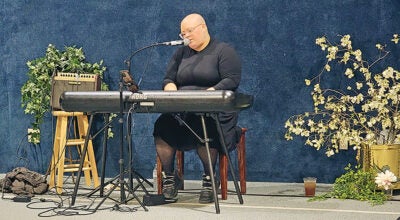Straight from a horse’s mouth
Published 10:34 pm Saturday, August 29, 2009
Open wide isn’t what you usually say to a horse, any more than sticking your hand down a horse’s mouth sounds like the best of working conditions.
But Dr. Steve Walker has seen over and over how beneficial regular dental care is for the equine world from better digestive health to less pain for the animal. So he’s not frightened off by a little salivia.
Walker is the large animal veterinarian at the Equine Medical Center, off Big Branch, outside Chesapeake. He is a staunch advocate for the dental practice called floating.
Horses, unlike human beings and most other animals, have a mouthful of teeth that won’t stop growing.
“Their teeth grow constantly,” Walker said. “As they grow they get as sharp as a knife.”
That’s because the upper and lower sections of the teeth don’t strike each other in relatively perfect alignment. That means the outside edge of the upper and the inside of the lower can turn into severe points cutting into the horse’s mouth.
“If you take your hand up there and rub it, it would cut your hand,” Walker said.
To correct that, Walker does the procedure called floating, in which he takes a handheld carbide grinding tool to smooth down the rough edges. The whole procedure takes less than 10 minutes.
After the horse is tranquilized, an instrument called a speculum is placed in the horse’s mouth. The speculum, which looks like a kind of harness with steel lips on it, is used to keep the animal’s mouth open. Then Walker begins the grinding process.
In recent years the American Association of Equine Practitioners has made a concerted push for regular dental exams.
Much of that is to counter myths that promote the belief that floating is unnecessary except under certain circumstances.
One myth is that floating isn’t necessary unless the horse is quidding or dropping his food because it hurts to chew.
“That is not true,” Walker said. “Horses are pretty tolerant to pain. A lot of people think if a horse is eating and not skinny, the horse doesn’t have a problem. A lot of good horse people have neglected teeth for a long time.”
Another myth is that young horses or ones that aren’t skinny don’t need floating.
“Young horses have exceptionally sharp teeth,” Walker said. “You can have a horse that maintains his weight and needs his teeth done.”
Besides the pain from chewing, conditions such as colic, which can be fatal, may result. Another advantage to having a horse’s teeth checked annually is basic economics.
“A lot of people have come to realize a horse becomes more fuel efficient when its teeth are well-cared for,” the vet said.
Floating can cost $100 yet save that and more in the cost of feed, according to Walker.
“Economically you will come out ahead by floating your horse and the horse is not in pain,” the vet said. “You are doing better for your horse and saving yourself money in the long run.”
Then there is the joy in having an animal that can live a long healthy life.
“I have patients that are 34 years old and look like a young horse. They have their health,” the vet said. “A lot of that has to do with the teeth.”





